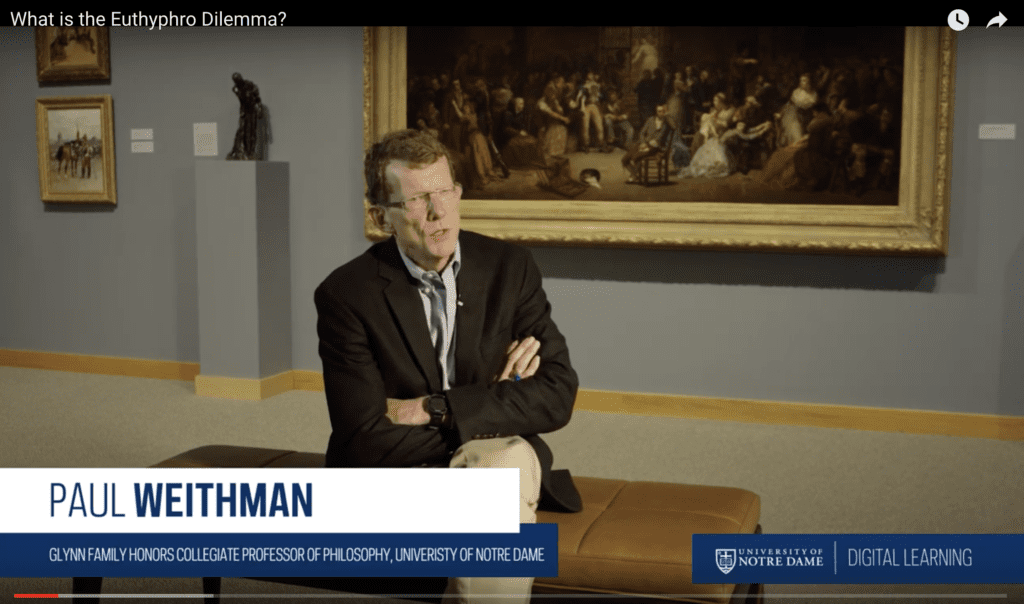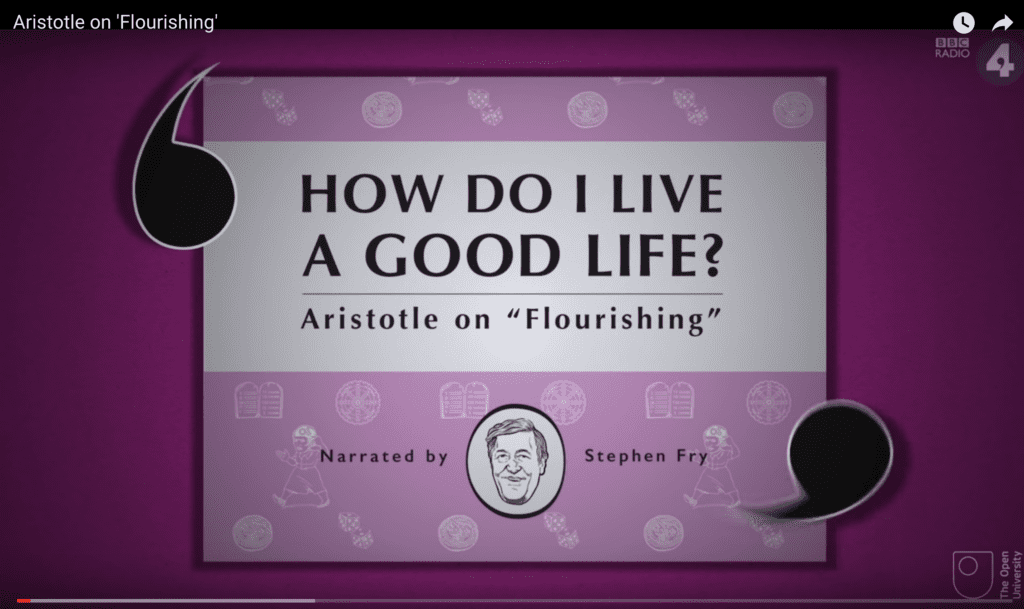Part 1: Goods and Lives

Welcome to the first day of "What Makes a Life Good?" In this four-part course, Professor Meghan Sullivan will walk you through this big philosophical question. Each of the four course pages will contain a lecture, a case study, and an optional activity. The lectures will introduce you to the big ideas. The case studies will show you how these ideas relate to real-world scenarios. And the activities will help you think about how to apply them in your own life. To figure out what makes a life good, we first have to take a moment to define goodness. In today's class, we'll discuss classical theories of goodness and ask what they can tell us about living good lives.
Meet the Instructor
Presented by Meghan Sullivan

Meghan Sullivan is Professor of Philosophy and the Rev. John A. O’Brien Collegiate Chair at the University of Notre Dame. She also serves as Director of the Notre Dame Institute for Advanced Study (NDIAS), a university-wide research institute based in Notre Dame Research.
Lecture 1: What is "The Good"?
Presented by Meghan Sullivan
In this lecture, Dr. Meghan Sullivan introduces the basic philosophical concepts that we need to answer the question “What makes a life good?”
Living The Good Life
Presented by Paul Blaschko

In today’s lesson, we hear a lot about “The Good Life.” When you hear this phrase, you might not think about Greek philosophy right away. That’s okay! Thinking about living a “good life” is deeply philosophical, but it’s also the kind of thing we are all trying to do every day. And figuring out whether to buy a house, take a job, or plan our next vacation are all ways that we do this.
When you think about going on vacation, for instance, you’re appreciating the role that leisure plays in a well-lived life. We don’t think that living well requires us to think and work 24 hours a day, and neither would Aristotle.
On the other hand, it was important for Aristotle that we eventually do sit down at some point in our lives and think about what makes a life good. And for Aristotle, this isn’t just because we haven’t come up with a more efficient way of answering the question. On his view, thinking about living a good life is an essential part of being human. It’s something we each have to do for ourselves.
In the next video, Meghan is going to do a bit more to explain why.
Case Study: Outsourcing Apologies
Presented by Meghan Sullivan
There are some things in life that we just can’t outsource to other people. In this video, we reflect on an interesting case that illustrates this point, and explain why determining what makes a life good is something you have to do for yourself.
Activity: What Are Your Essential Goods?
Presented by Paul Blaschko
According to Aristotle, living a good life means acquiring essential goods and putting them into the right order. In this activity, you’re invited to reflect more carefully on what you value and why. You can use this worksheet (full color or printer-friendly) as a guide.
Additional Resources
Readings:
- Excerpts from Aristotle’s Nicomachean Ethics (an interactive text).
- An article in “Tokyo Weekender” about the “apology agency” referenced in this week’s case study.
- An important academic book by Notre Dame philosopher Alasdair MacIntyre on Aristotle, virtue, and the good life.
Click here for reflection and discussion questions on “What Makes a Life Good?”



